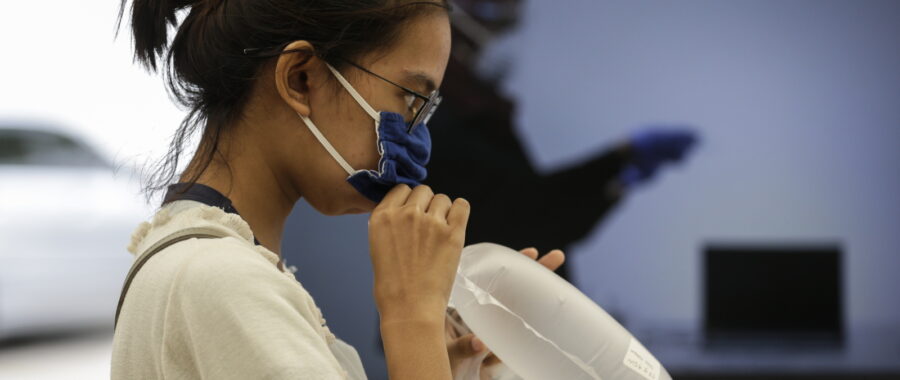
EPA/MAST IRHAM
Indonezja: nowy sposób testowania na COVID-19 [GALERIA]
Pasażerowie na stacji kolejowej Pasar Senen w Dżakarcie otrzymują plastikowe torby do próbek powietrza do badania na obecność COVID-19. System GeNose został opracowany przez Uniwersytet Gadjah Mada (UGM). Ogłoszono, że jest w stanie wykryć przypadki COVID-19 z dokładnością do 95 procent.
- epa08986091 A worker tests a plastic bag containing the air sample of a passenger, using a COVID-19 breath test detectors tool, GeNose, at Pasar Senen train station in Jakarta, Indonesia, 04 February 2021. GeNose was developed by Gadjah Mada University (UGM) and it was reported to be able to detect COVID-19 cases with an accuracy of 95 percent. EPA/MAST IRHAM Dostawca: PAP/EPA.
- fot. EPA/MAST IRHAM
- epa08986093 Passangers hold plastic bags as they have their air samples taken to be tested for COVID-19 using a breath detector, GeNose, at Pasar Senen train station in Jakarta, Indonesia, 04 February 2021. GeNose was developed by Gadjah Mada University (UGM) and it was reported to be able to detect COVID-19 cases with an accuracy of 95 percent. EPA/MAST IRHAM Dostawca: PAP/EPA.
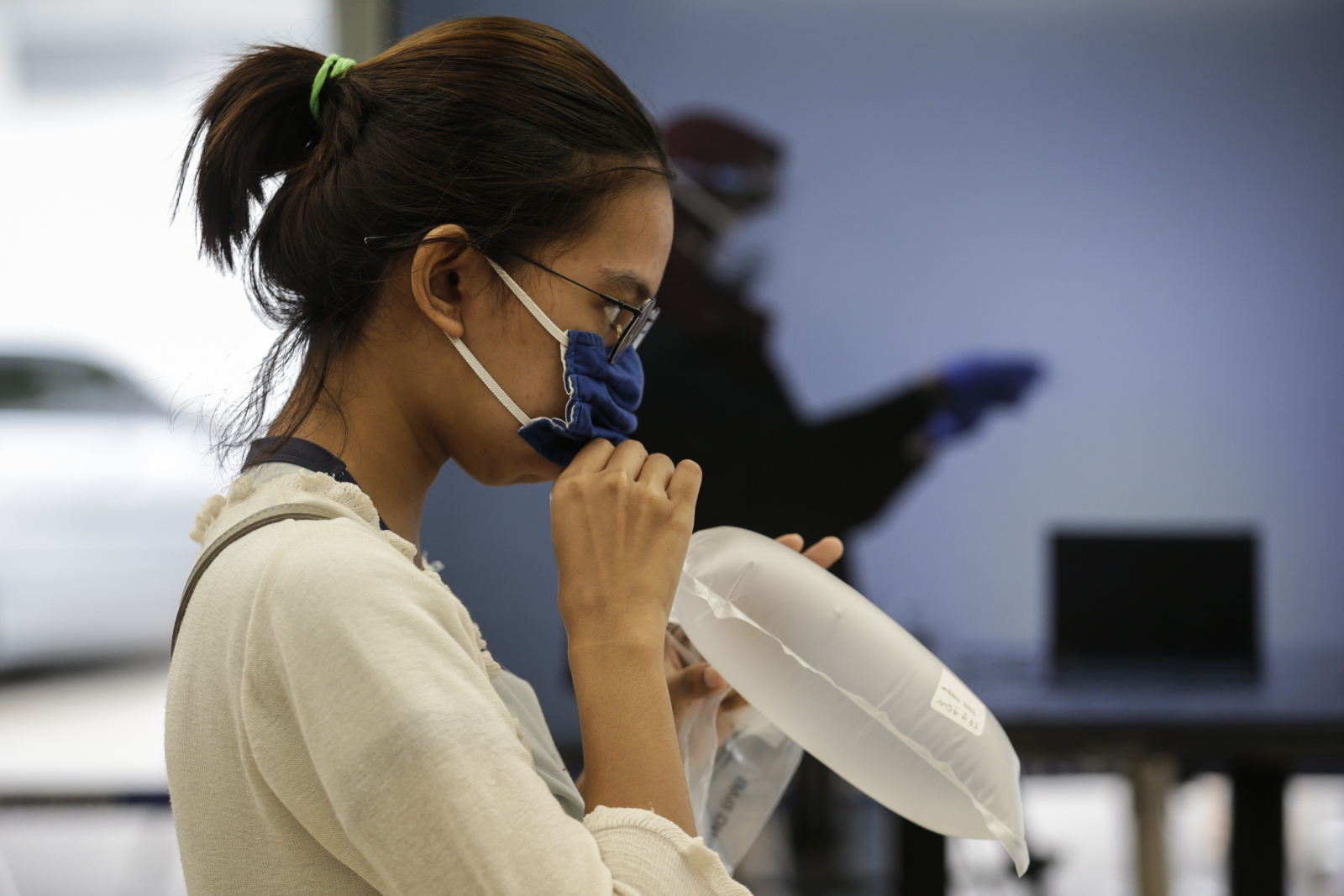
- epa08986094 A passenger has his air sample taken to be tested for COVID-19 using a breath detector, GeNose, at Pasar Senen train station in Jakarta, Indonesia, 04 February 2021. GeNose was developed by Gadjah Mada University (UGM) and it was reported to be able to detect COVID-19 cases with an accuracy of 95 percent. EPA/MAST IRHAM Dostawca: PAP/EPA.
- epa08986097 A worker collects labelled plastic bags containing the air samples of train passengers to be tested for COVID-19 using a breath detector, GeNose, at Pasar Senen train station in Jakarta, Indonesia, 04 February 2021. GeNose was developed by Gadjah Mada University (UGM) and it was reported to be able to detect COVID-19 cases with an accuracy of 95 percent. EPA/MAST IRHAM Dostawca: PAP/EPA.
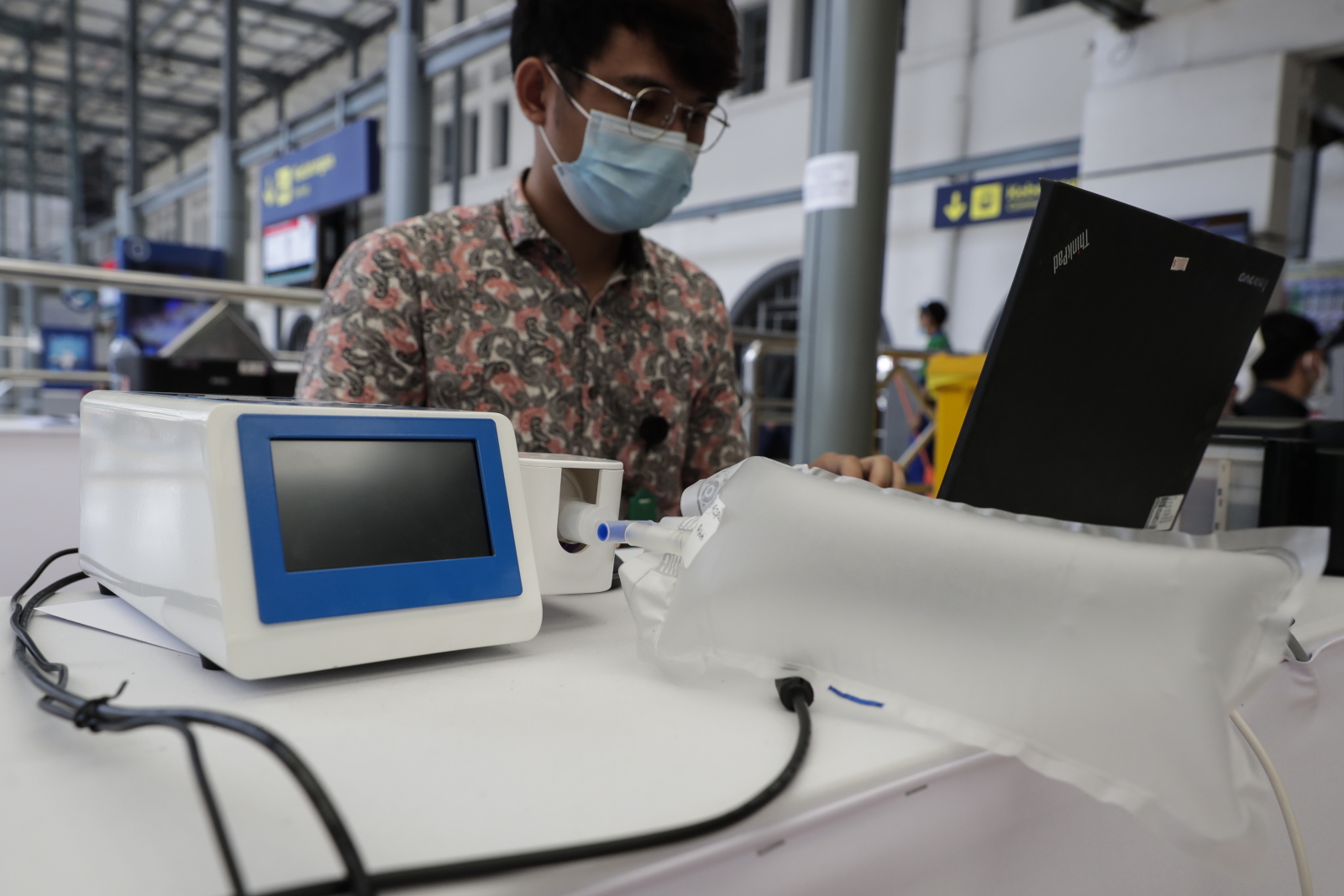
- epaselect epa08986094 A passenger has his air sample taken to be tested for COVID-19 using a breath detector, GeNose, at Pasar Senen train station in Jakarta, Indonesia, 04 February 2021. GeNose was developed by Gadjah Mada University (UGM) and it was reported to be able to detect COVID-19 cases with an accuracy of 95 percent. EPA/MAST IRHAM Dostawca: PAP/EPA.









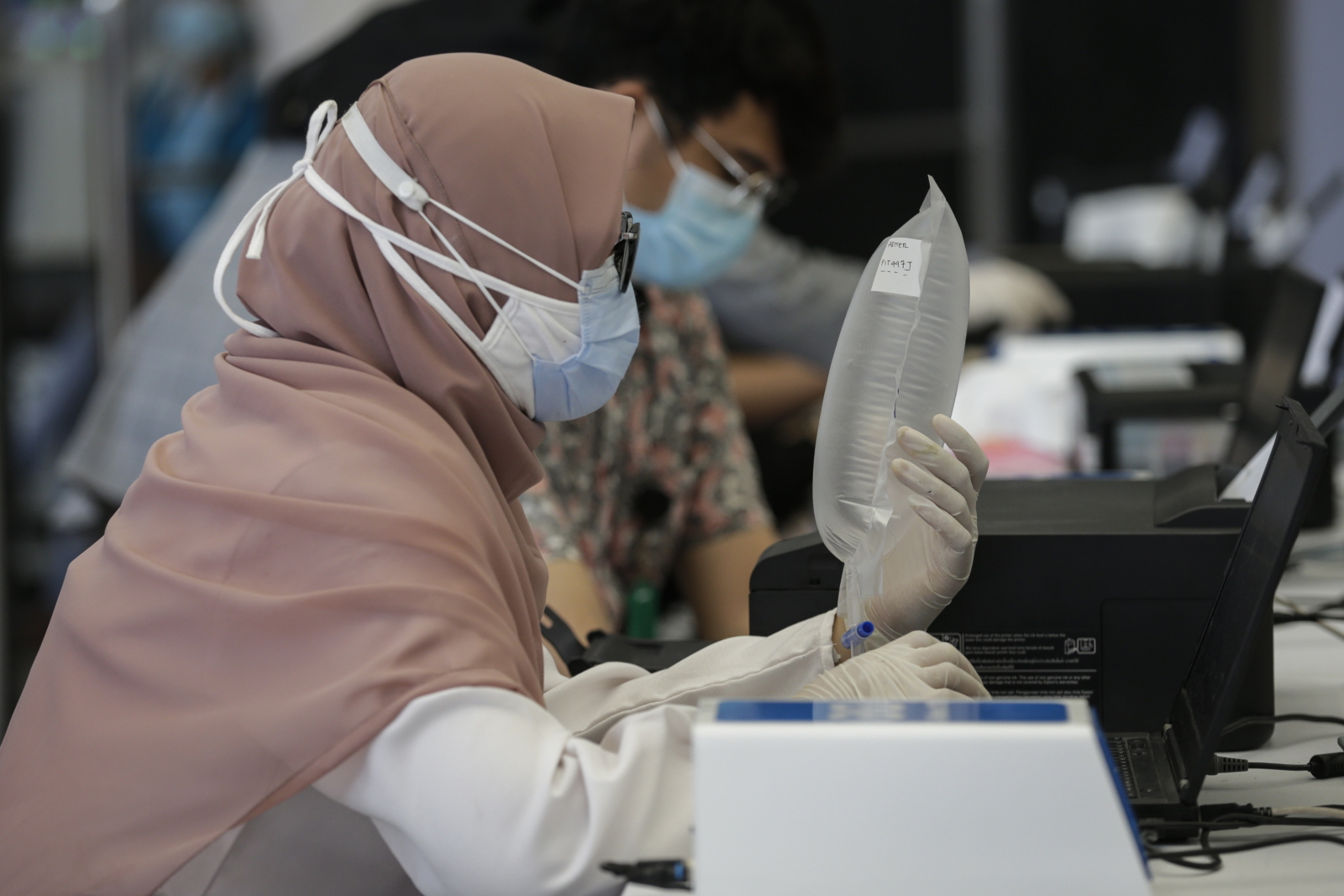
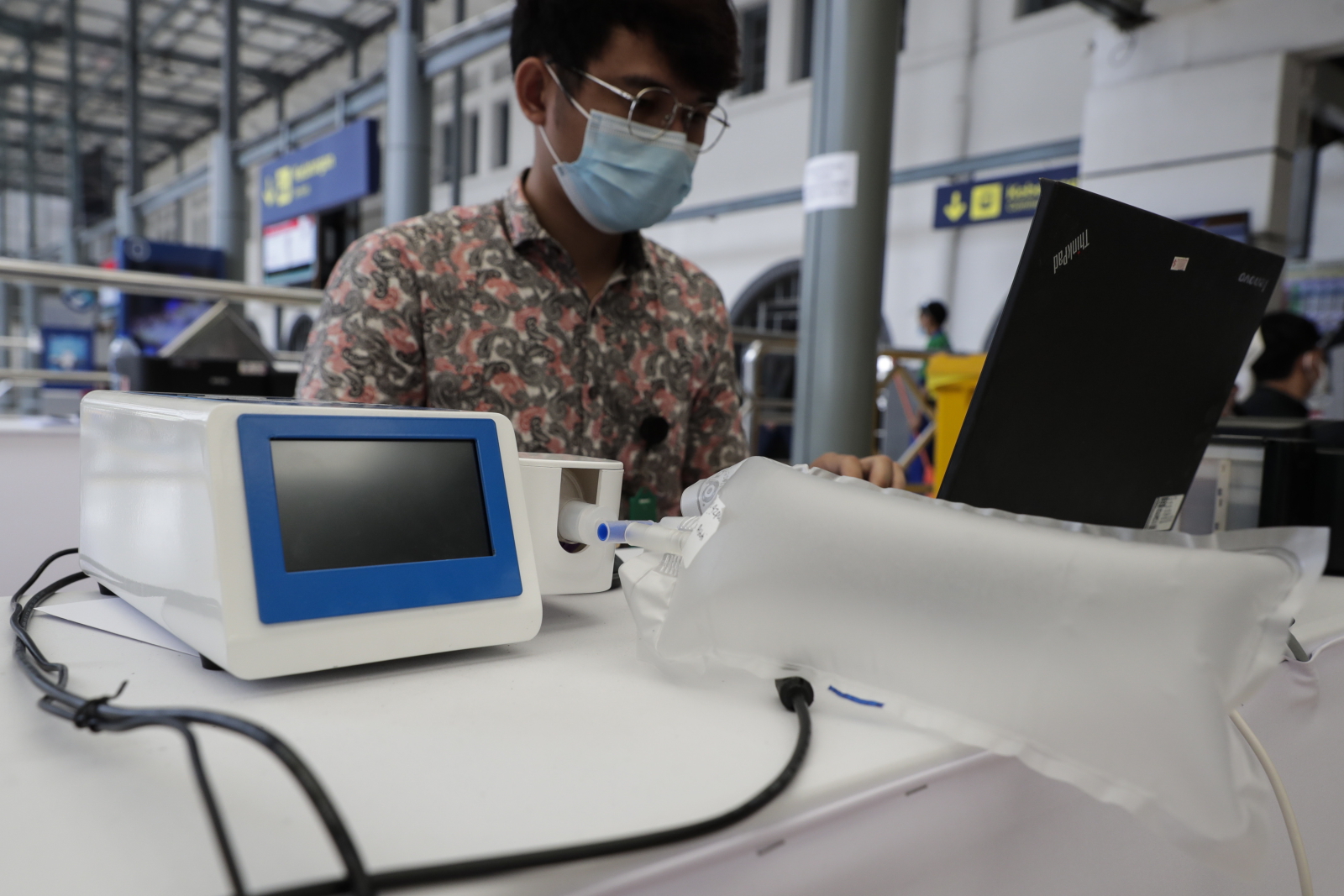
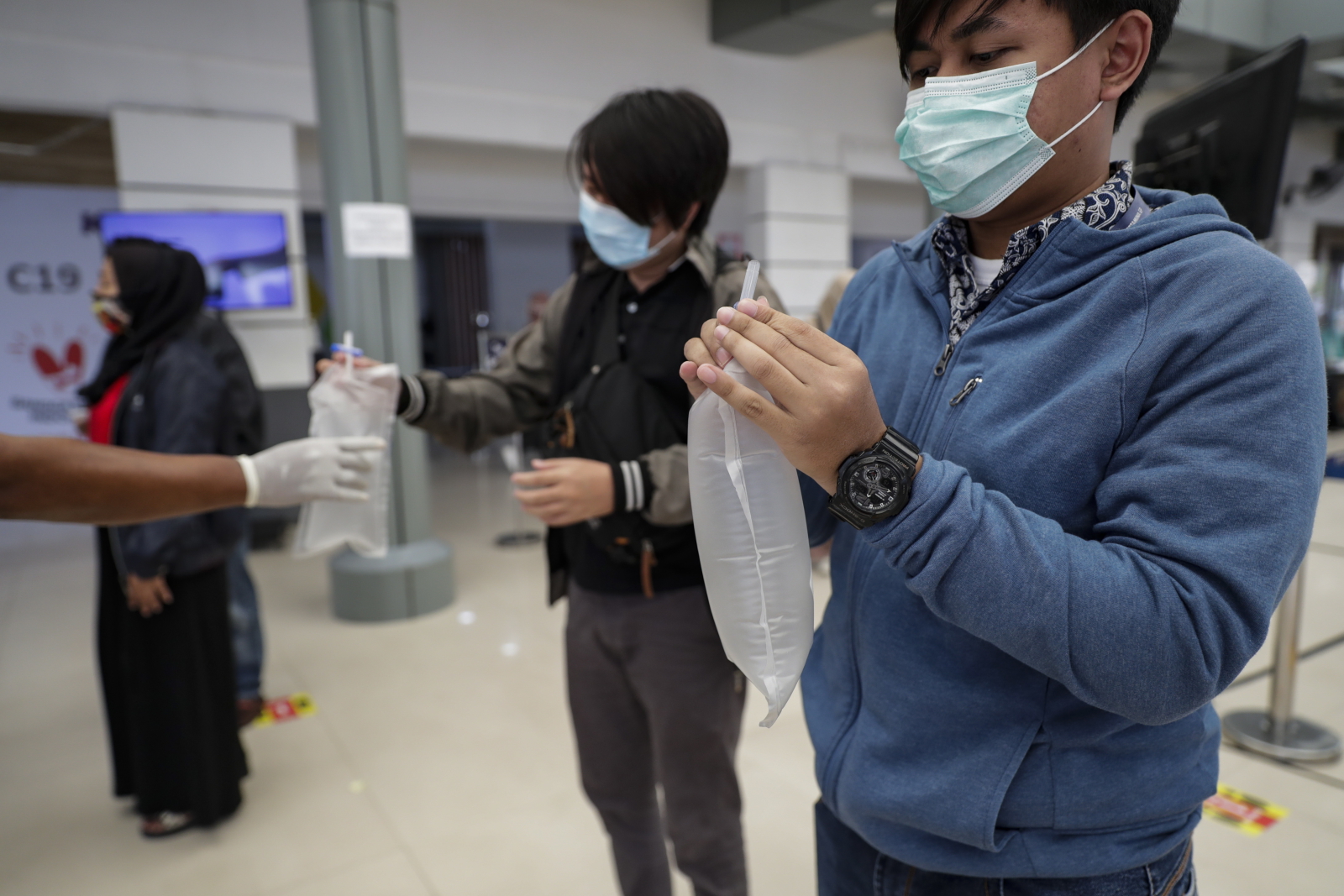
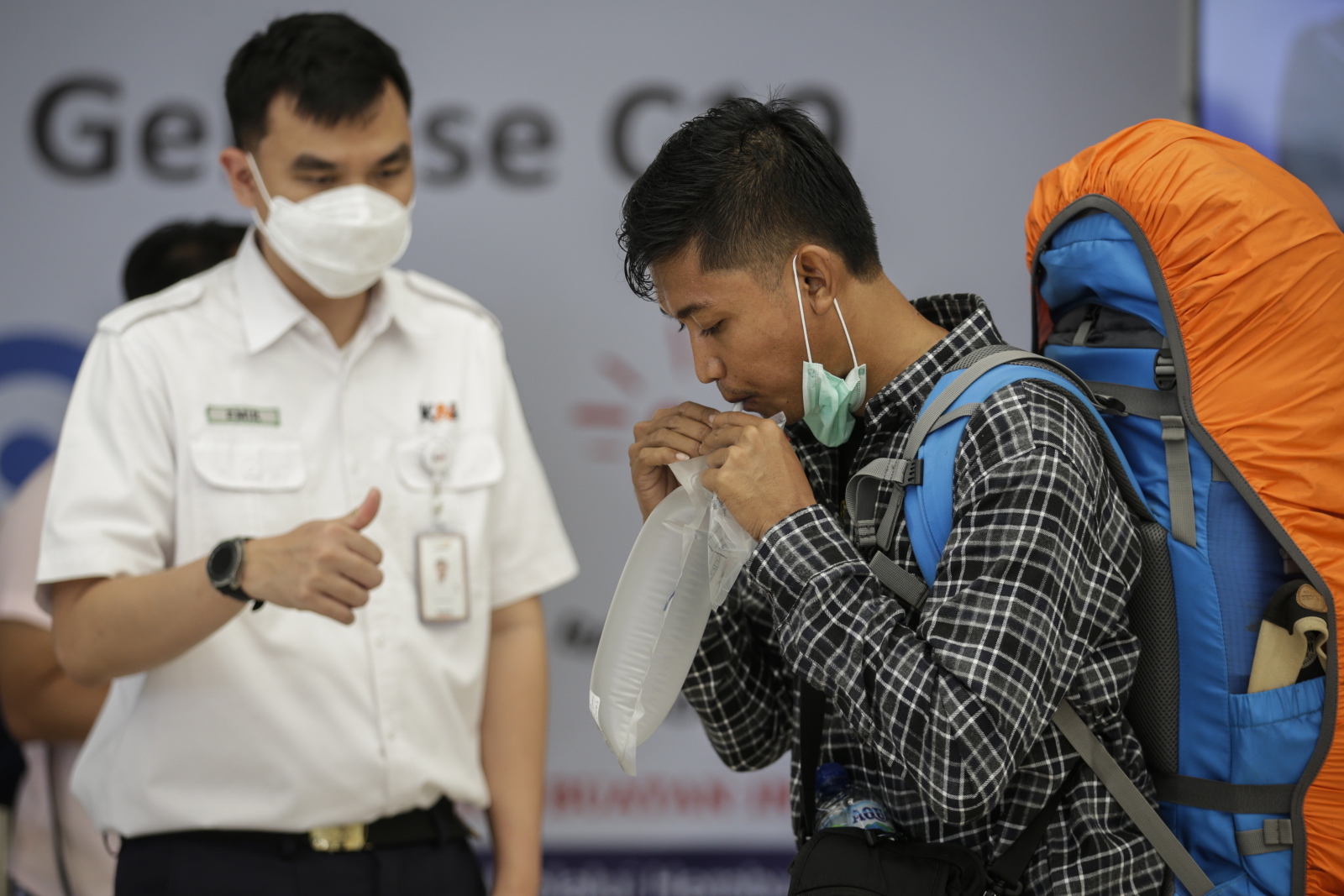
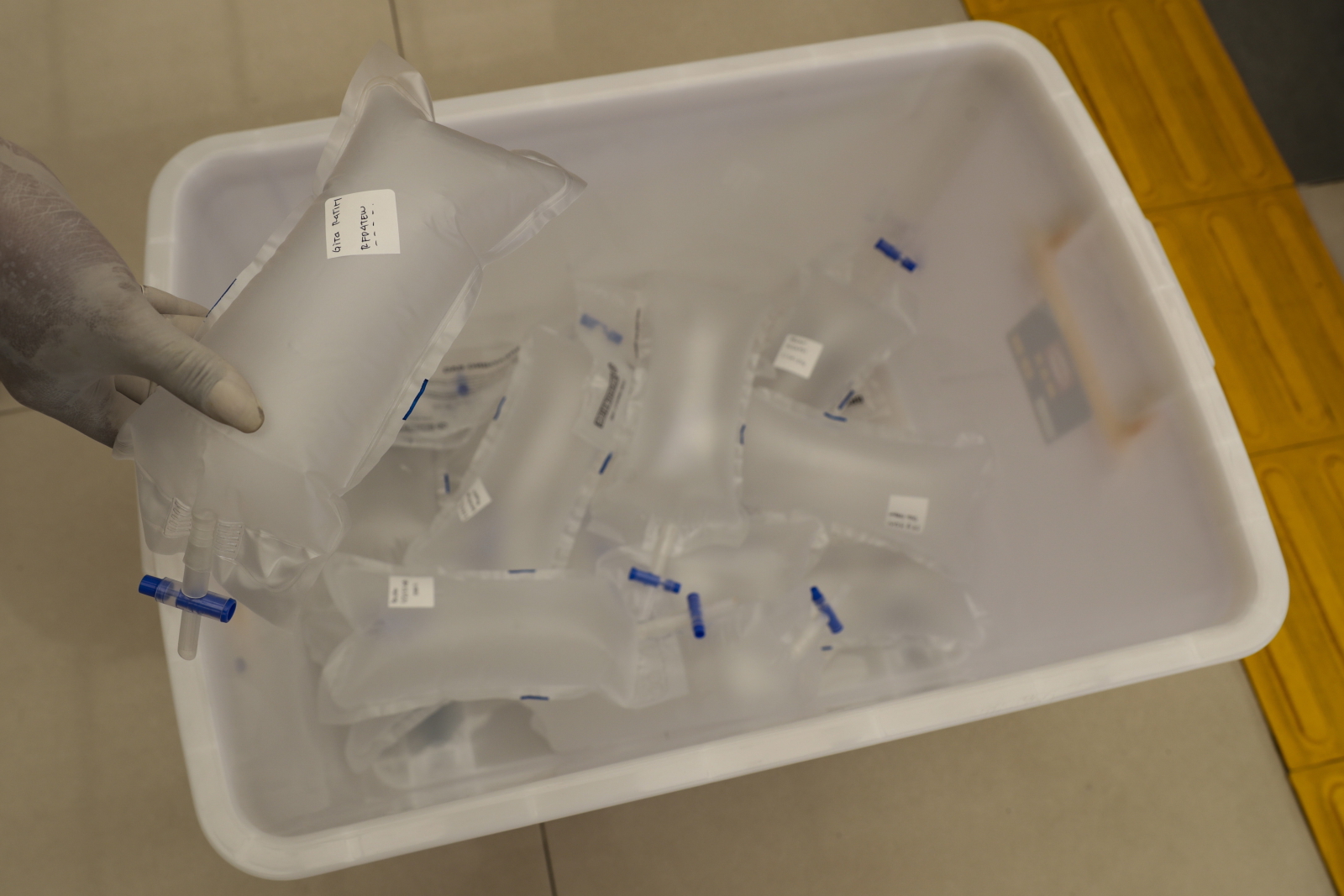
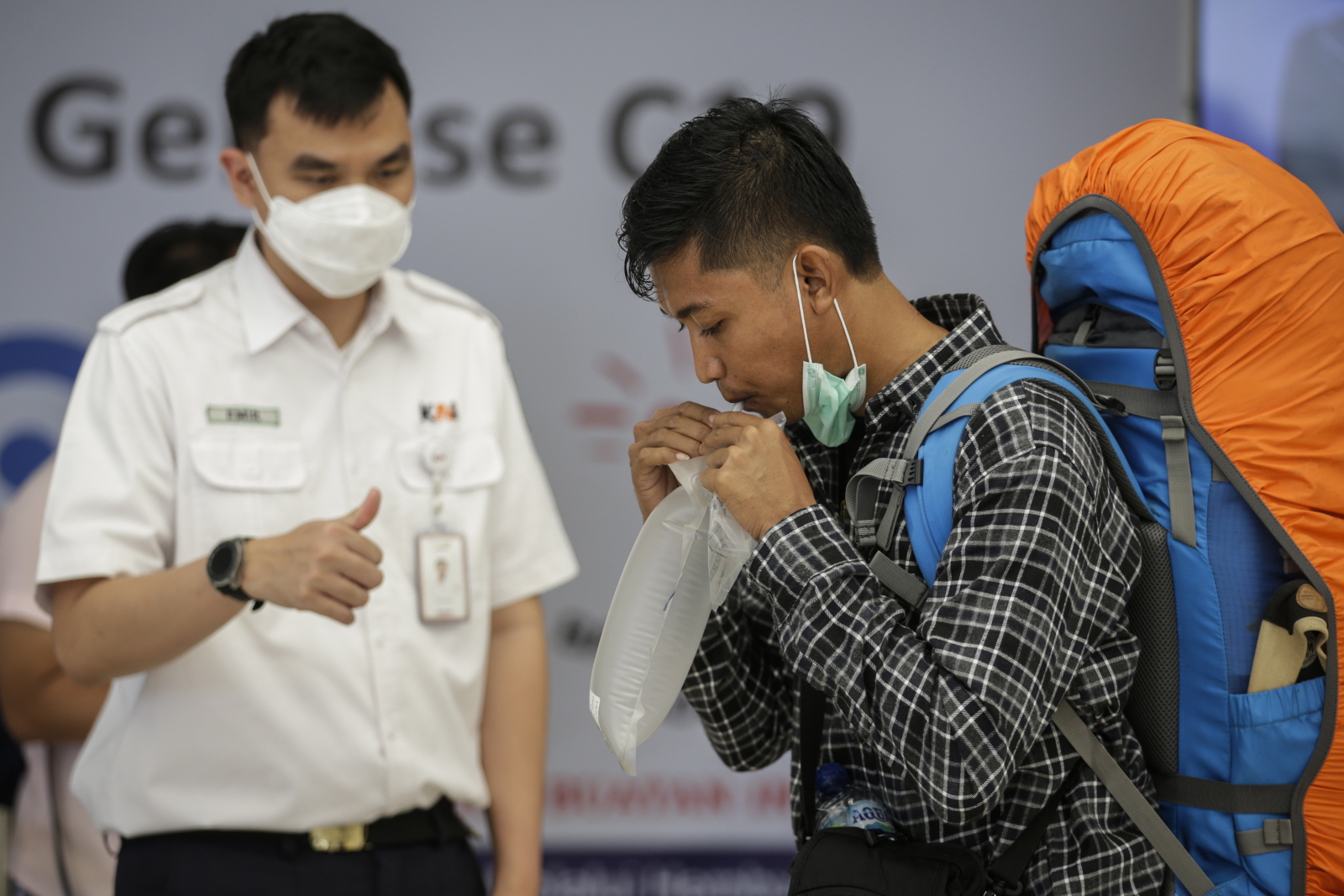






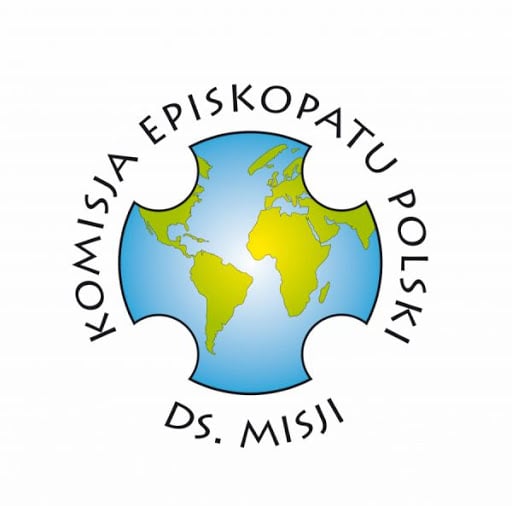
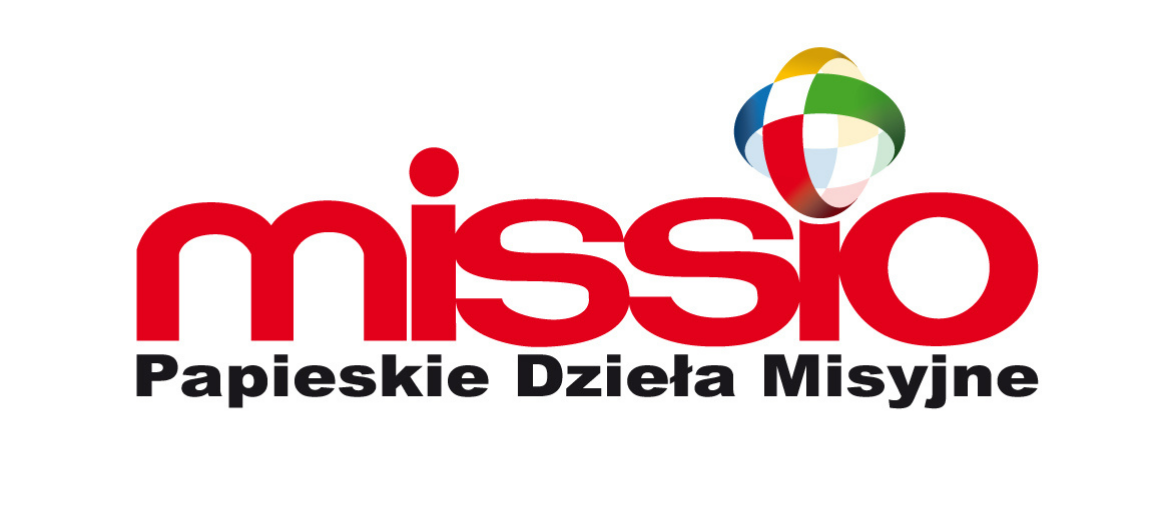


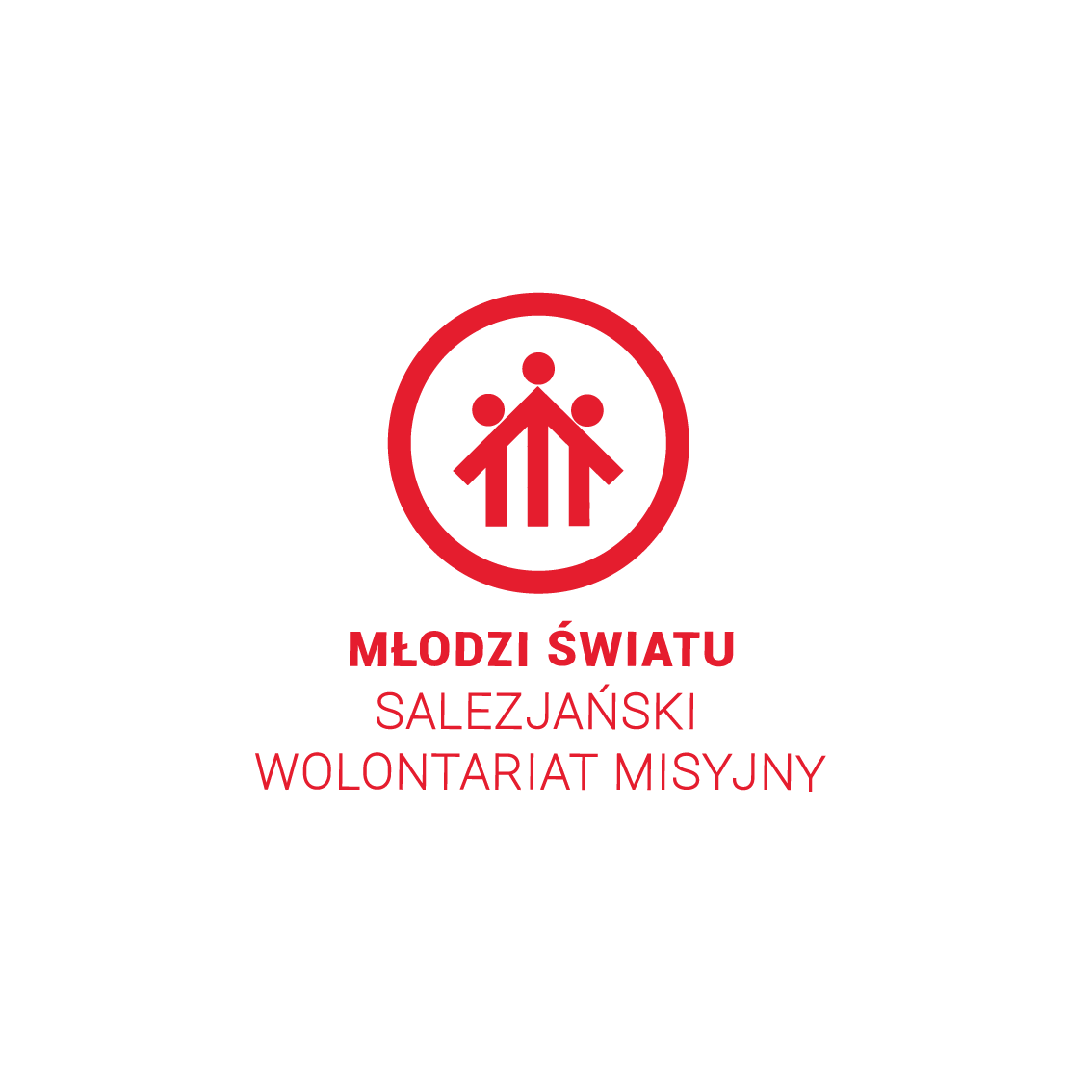


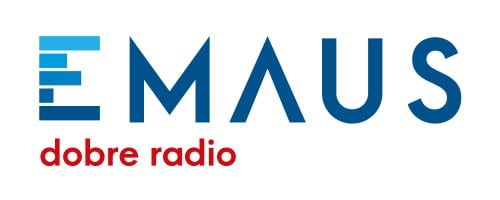


 Wiadomości
Wiadomości Wideo
Wideo Modlitwy
Modlitwy Sklep
Sklep Kalendarz liturgiczny
Kalendarz liturgiczny